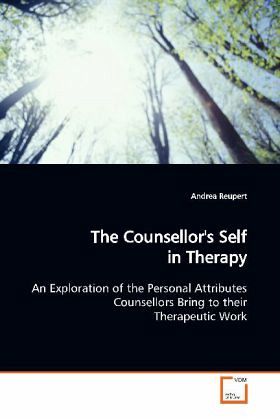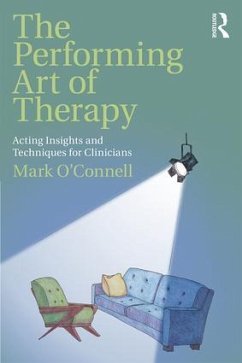
The Counsellor's Self in Therapy
An Exploration of the Personal Attributes Counsellors Bring to their Therapeutic Work
Versandkostenfrei!
Versandfertig in 6-10 Tagen
51,99 €
inkl. MwSt.

PAYBACK Punkte
26 °P sammeln!
In this book, counsellors from different backgrounds describe what they bring of themselves to therapy and how their self might impact on clients. The counsellors describe the counsellor''s self as a multifaceted, integrated and, in the main, a positive entity. This self includes counsellors'' professional knowledge and skills as well as their beliefs, values, thoughts, feelings, personal style and an unknown aspect of self that some referred to as their unconscious. Counsellors were clear that the presence of self was inevitable, as well as offering them a deliberate tool that they might empl...
In this book, counsellors from different backgrounds
describe what they bring of themselves to therapy
and how their self might impact on clients. The
counsellors describe the counsellor''s self as a
multifaceted, integrated and, in the main, a
positive entity. This self includes counsellors''
professional knowledge and skills as well as their
beliefs, values, thoughts, feelings, personal style
and an unknown aspect of self that some referred to
as their unconscious. Counsellors were clear that
the presence of self was inevitable, as well as
offering them a deliberate tool that they might
employ. Various self enactments were highlighted, in
particular the use of self in the therapeutic
alliance. The implications for training, practice
and supervision are explored also. Overall, this
book highlights the importance of self that
counsellors bring to their work, and provides a
discussion of how the presence of self might most
effectively be utilised when working with clients.
describe what they bring of themselves to therapy
and how their self might impact on clients. The
counsellors describe the counsellor''s self as a
multifaceted, integrated and, in the main, a
positive entity. This self includes counsellors''
professional knowledge and skills as well as their
beliefs, values, thoughts, feelings, personal style
and an unknown aspect of self that some referred to
as their unconscious. Counsellors were clear that
the presence of self was inevitable, as well as
offering them a deliberate tool that they might
employ. Various self enactments were highlighted, in
particular the use of self in the therapeutic
alliance. The implications for training, practice
and supervision are explored also. Overall, this
book highlights the importance of self that
counsellors bring to their work, and provides a
discussion of how the presence of self might most
effectively be utilised when working with clients.












